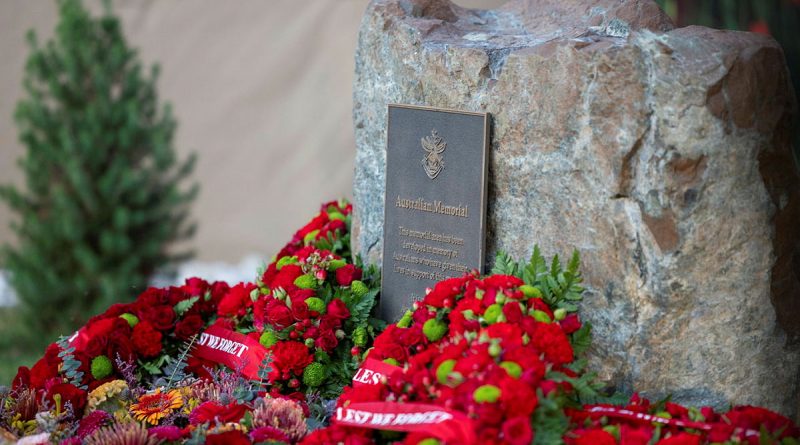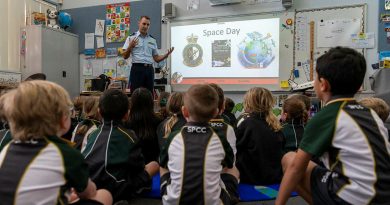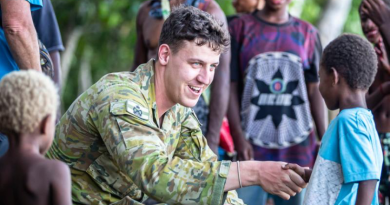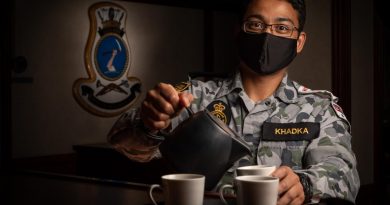Keeping traditions alive in the Middle East – Anzac Day
Share the post "Keeping traditions alive in the Middle East – Anzac Day"

Deployed servicemen and women in the Middle East gathered before first light to mark 109 years since the Gallipoli landings and honour all those who have died in service.
CAPTION: The Headquarters Middle East Anzac Day memorial following the dawn service. Story. and photos by Corporal Jacob Joseph.
About 100 Australian, New Zealand, British and United States military personnel and public servants attended the Anzac Day memorial service at Headquarters Middle East – Australia’s main operating base in the region.
For those deployed on Operation Accordion, it was a chance to remember those who have sacrificed in service of their nation, both past and present.
Operation Accordion is the mission to support ADF operations in the Middle East region.
Headquarters Middle East operations movements coordinator Chief Petty Officer Stephanie Ellis said being deployed alongside partner nations highlighted the importance of shared sacrifice.
“Anzac Day is a day that brings militaries together, no matter your service or uniform,” Chief Petty Officer Ellis said.
“It’s that one time you get to stand next to those people that you serve with and pay your respects – it’s up to us to keep this tradition going so we never forget their sacrifice.”
Representatives from Australia, New Zealand, England and the United States laid wreaths at the newly constructed memorial within Camp Baird, where Australian forces are stationed. The Ode of Remembrance was then recited in both English and Maori.
The most senior enlisted soldier at Headquarters Middle East, Warrant Officer Class One (WO1) Grant Wharton, said Anzac Day was as much a reflection on service as it was about honouring the fallen.
He said it was important not to overlook the men and women struggling after decades of operational deployments to Iraq and Afghanistan.
WO1 Wharton’s grandfather was part of the force that liberated the Bergen-Belsen Nazi concentration camp. He took his own life after returning from service.
After back-to-back deployments to Iraq and Afghanistan from 2004 onwards, WO1 Wharton faced his own struggles with post-traumatic stress disorder (PTSD).
He could relate to his grandfather’s condition and said there were many servicemen and women who needed support.
“In learning to live with PTSD myself, I reflect on those brave men who went away and then came back without support from psychologists or medical treatment,” WO1 Wharton said.
“They suffered in silence trying to integrate back into society.”
.
.

.
.
Share the post "Keeping traditions alive in the Middle East – Anzac Day"





